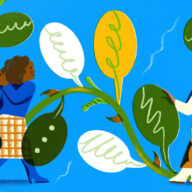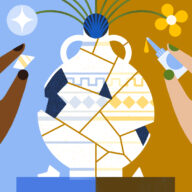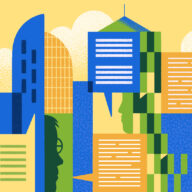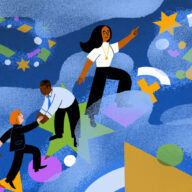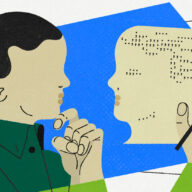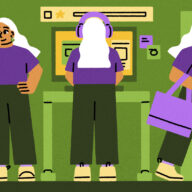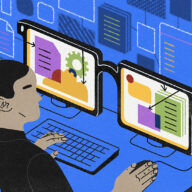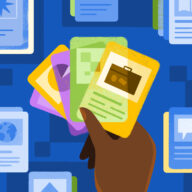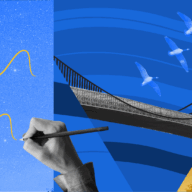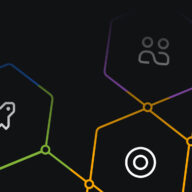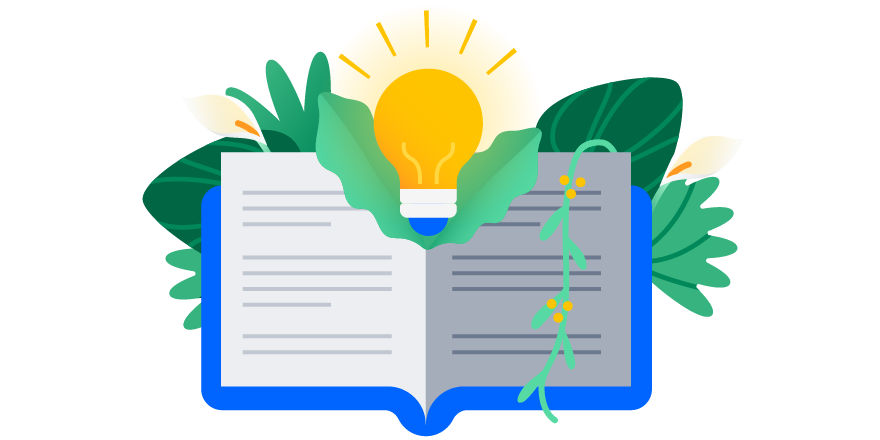13 books that disrupt stereotypes and build emotional intelligence
There are so many experiences that can be understood through literature. When we access those stories, we push back on ignorance and build the emotional intelligence that is so important for personal and professional success.
For the second year in a row, the most popular way to make the world a more inclusive place can be summed up in one word: listen.
That’s what thousands of people told us in a recent survey about behaviors and attitudes around diversity and inclusion. By a sizable margin, “learning about the experiences of colleagues different from me” is the most common thing people do to foster inclusion and belonging in their workplace.
And that’s awesome.
So when Minnesota Public Radio host Kerri Miller aired a roundtable discussion about reading outside your comfort zone, my ears perked up. I grabbed one of the books they mentioned and dug in. As you’ll read below, I feel like a better person for having taken up this challenge. Yet, without the nudge, it never even would have occurred to me.
“There are so many more experiences that can be understood through literature,” Miller said when I spoke with her recently. She views reading outside the comfort zone as a way to push back on ignorance and stereotypes. “We miss a key part of what it means to be members of the global community if we’re not accessing those kinds of stories.”
Listening to the stories of people different from us not only leads to a more inclusive environment for everyone by making us more effective allies, it contributes to the listener’s personal growth. It’s a powerful way to build emotional intelligence and empathy, both of which are ever-more critical for succeeding professionally and personally.
In the spirit of sharing this ethic, I asked my colleagues at Atlassian what books had taken them out of their comfort zone and showed them how the world looks through another’s eyes. Here’s how they answered.
“One Hundred Years of Solitude” by Gabriel García Márquez
Recommended by Lucas Moura
 “This book helped me understand the impact of cycles in our lives: cycles of suffering, happiness, abuse, justice, and injustice. Our villages (including the global village), families, and legacies are products of all these processes. The author uses his mastery of words to shift our perspective and show that time doesn’t just pass – it turns in a circle.”
“This book helped me understand the impact of cycles in our lives: cycles of suffering, happiness, abuse, justice, and injustice. Our villages (including the global village), families, and legacies are products of all these processes. The author uses his mastery of words to shift our perspective and show that time doesn’t just pass – it turns in a circle.”
“Between The World And Me” by Ta-Nehisi Coates
Recommended by Sarah Goff-Dupont
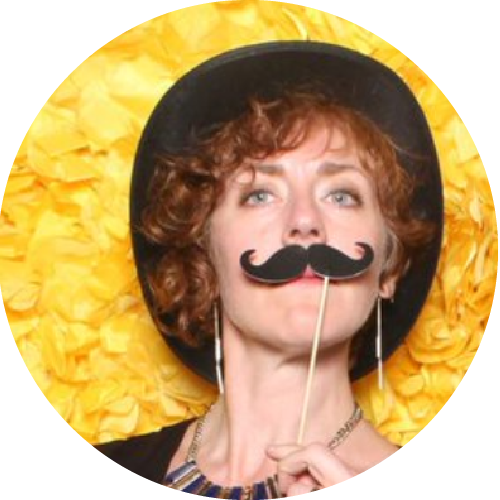 “Written by a Black man who came of age in 1990s Baltimore, this autobiographical book is both brilliant and confronting. Coates describes in visceral detail what it’s like to balance the knowledge that your physical person under threat – from peers at school, gangs outside your house, police patrolling your neighborhood – with your desire to thrive as a human. As a reader, I was transported into a completely different mindset and given a glimpse of how pervasive, low-grade fear influences the choices people make.”
“Written by a Black man who came of age in 1990s Baltimore, this autobiographical book is both brilliant and confronting. Coates describes in visceral detail what it’s like to balance the knowledge that your physical person under threat – from peers at school, gangs outside your house, police patrolling your neighborhood – with your desire to thrive as a human. As a reader, I was transported into a completely different mindset and given a glimpse of how pervasive, low-grade fear influences the choices people make.”
“Persepolis” by Marjane Satrapi
Recommended by Andre Serna
 “I read very few graphic novels, but this one would stand out in any medium. It’s about a young girl growing up in post-Islamic Revolution Iran, who migrates back and forth to Europe. Most of us don’t usually hear the perspectives of non-Western female immigrants, especially with the kind of realism this book offers. It challenges the reader in startling ways, but is also darkly humorous.”
“I read very few graphic novels, but this one would stand out in any medium. It’s about a young girl growing up in post-Islamic Revolution Iran, who migrates back and forth to Europe. Most of us don’t usually hear the perspectives of non-Western female immigrants, especially with the kind of realism this book offers. It challenges the reader in startling ways, but is also darkly humorous.”
“Just Mercy” by Bryan Stevenson
Recommended by Jenny Marshall
 “Bryan Stevenson founded the Equal Justice Initiative in Montgomery, Alabama. They’ve won legal challenges eliminating excessive and unfair sentencing, exonerating innocent death row prisoners, confronting the abuse of the incarcerated and the mentally ill, and aiding children prosecuted as adults. In Just Mercy, Stevenson describes several of his most heart-wrenching and hard-fought cases, which underscore the incredible injustices in our “justice” system – particularly capital punishment in America. Though hard to digest at times, the book is beautifully written, eye-opening, and ultimately, inspiring.”
“Bryan Stevenson founded the Equal Justice Initiative in Montgomery, Alabama. They’ve won legal challenges eliminating excessive and unfair sentencing, exonerating innocent death row prisoners, confronting the abuse of the incarcerated and the mentally ill, and aiding children prosecuted as adults. In Just Mercy, Stevenson describes several of his most heart-wrenching and hard-fought cases, which underscore the incredible injustices in our “justice” system – particularly capital punishment in America. Though hard to digest at times, the book is beautifully written, eye-opening, and ultimately, inspiring.”
“The Elusive Quest for Growth” by William R. Easterly
Recommended by Ashwin Srinivasan
 “Rumor has it that the author was fired from his job as a development economist at the World Bank. Why? Because he provides a detailed analysis of aid initiatives and why they succeeded or failed, ultimately concluding that developmental aid often does more harm than good. This is a highly controversial book, and it challenged a lot of my notions about charity and development. It also gave me a new appreciation for just how difficult it is to break poverty cycles.”
“Rumor has it that the author was fired from his job as a development economist at the World Bank. Why? Because he provides a detailed analysis of aid initiatives and why they succeeded or failed, ultimately concluding that developmental aid often does more harm than good. This is a highly controversial book, and it challenged a lot of my notions about charity and development. It also gave me a new appreciation for just how difficult it is to break poverty cycles.”
“A Little Life” by Hanya Yanagihara
Recommended by Emma Young
 “This is not a book with a happy ending. It centers on a person who is physically disabled, and whose childhood experiences add mental and psychological scars. The extent of his suffering and his unwillingness to seek help makes this a very uncomfortable read. At the same time, we are offered a window into the minds of those who are too proud or stubborn to let others help them, and I walked away with a more compassionate view of people like him.”
“This is not a book with a happy ending. It centers on a person who is physically disabled, and whose childhood experiences add mental and psychological scars. The extent of his suffering and his unwillingness to seek help makes this a very uncomfortable read. At the same time, we are offered a window into the minds of those who are too proud or stubborn to let others help them, and I walked away with a more compassionate view of people like him.”
“The Color of Law” by Richard Rothstein
Recommended by Ryan Anderson
 “The history of government mandated segregation in U.S. housing policies from the 1920’s through the post-Civil Rights era has largely been forgotten or watered-down. The author rejects many of the common explanations for segregation (cultural, income-based, etc.) and makes it clear that it was the result of a dedicated effort from lawmakers. I knew bits and pieces of the history before reading this book, but it was eye-opening (and deeply disturbing) to learn just how widespread and accepted the practice was.”
“The history of government mandated segregation in U.S. housing policies from the 1920’s through the post-Civil Rights era has largely been forgotten or watered-down. The author rejects many of the common explanations for segregation (cultural, income-based, etc.) and makes it clear that it was the result of a dedicated effort from lawmakers. I knew bits and pieces of the history before reading this book, but it was eye-opening (and deeply disturbing) to learn just how widespread and accepted the practice was.”
“The Fire Next Time” by James Baldwin
Recommended by Jamey Austin
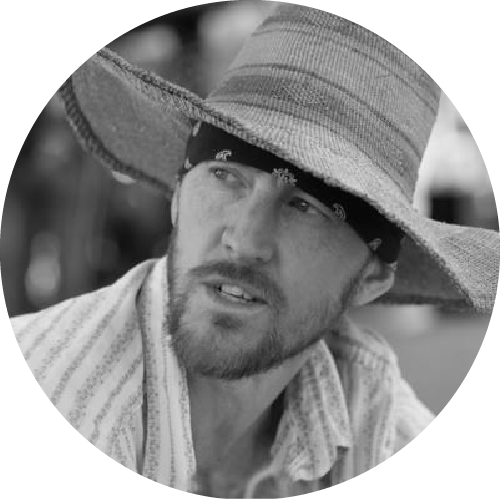 “James Baldwin’s ability to articulate the deeper, more profound nuances of racism in the United States is without equal. His writing specifically addresses the relationship between white and black Americans, and how a fundamental problem in American society is white peoples’ discomfort and alienation from themselves. I’ve never read anything so eye-opening and insightful about this seemingly never-ending issue.”
“James Baldwin’s ability to articulate the deeper, more profound nuances of racism in the United States is without equal. His writing specifically addresses the relationship between white and black Americans, and how a fundamental problem in American society is white peoples’ discomfort and alienation from themselves. I’ve never read anything so eye-opening and insightful about this seemingly never-ending issue.”
“Hillbilly Elegy” by J.D. Vance
Recommended by John Collins…
 “Having spent a majority of my life in or adjacent to the Appalachians, I’ve seen the brawling and churchgoing and despair that closely aligns with the vignettes of Vance’s youth. I’ve been shocked at the poverty along US Highway 52 on the shores of the Ohio River as well. His explanations start to explain what I saw and why. Sure, I’m left with more questions than answers, but I start to understand what makes people tick. It makes me want to be more aware of the people I encounter and ready to make a difference.”
“Having spent a majority of my life in or adjacent to the Appalachians, I’ve seen the brawling and churchgoing and despair that closely aligns with the vignettes of Vance’s youth. I’ve been shocked at the poverty along US Highway 52 on the shores of the Ohio River as well. His explanations start to explain what I saw and why. Sure, I’m left with more questions than answers, but I start to understand what makes people tick. It makes me want to be more aware of the people I encounter and ready to make a difference.”
…and by Season Hughes

“When I saw Hillbilly Elegy come up for my book club, I rolled my eyes and resisted. My family moved to North Carolina when I was in 5th grade, and I grew up as that you’re-not-from-around-here outsider, which left wounds I wasn’t keen to re-open. But I’m glad I read it anyway. I now have greater empathy for a culture that’s had to endure trials I’ve never even come close to, leading them to develop a thick skin, perceptive intelligence, and a protective family mentality. And it’s a great story of someone succeeding despite all odds.”
“The Handmaid’s Tale” by Margaret Atwood
Recommended by Ali Kord
 “Even though this story is set in the near future in a Western country where democracy has recently been abolished, it is eerily reminiscent of post-Revolution Iran (which is where I grew up). Despite the book being ‘speculative fiction’, it surfaced all-too-real memories of doctors being hanged for performing abortions, public executions and stoning, and the mistreatment of war widows. The genius of the book is that it doesn’t hyperbolize. Yet it showed me in graphic detail what it’s like when women and their bodies are held hostage by a misogynistic culture. Furthermore, it reminds all of us that the rights and protections we enjoy are more precarious than we might think.”
“Even though this story is set in the near future in a Western country where democracy has recently been abolished, it is eerily reminiscent of post-Revolution Iran (which is where I grew up). Despite the book being ‘speculative fiction’, it surfaced all-too-real memories of doctors being hanged for performing abortions, public executions and stoning, and the mistreatment of war widows. The genius of the book is that it doesn’t hyperbolize. Yet it showed me in graphic detail what it’s like when women and their bodies are held hostage by a misogynistic culture. Furthermore, it reminds all of us that the rights and protections we enjoy are more precarious than we might think.”
“Deadhouse Gates” by Steven Erikson
Recommended by Tyler Smith
 “I know, I know: a pop fantasy novel? Really? But this book does something different. It looks at both sides of a political conflict and leaves you with a feeling of not knowing who is right and who is wrong. It made me question my capacity for moral judgment, and by the end, left me in tears.”
“I know, I know: a pop fantasy novel? Really? But this book does something different. It looks at both sides of a political conflict and leaves you with a feeling of not knowing who is right and who is wrong. It made me question my capacity for moral judgment, and by the end, left me in tears.”
“Notes of a Native Son” by James Baldwin
Recommended by Tanaz Ahmed
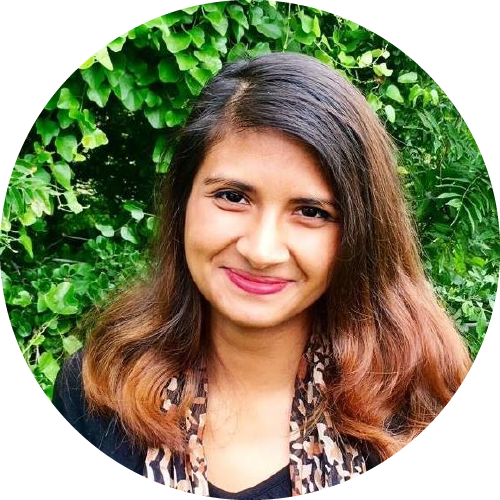 “This book made me think more critically about the way black characters are portrayed in American literature, as well as in pop culture in general. For example, in school, we’re taught that ‘Uncle Tom’s Cabin’ was a powerful agent of change leading up to the American Civil War. Yet the stereotypes it perpetuated are rarely if ever, discussed.”
“This book made me think more critically about the way black characters are portrayed in American literature, as well as in pop culture in general. For example, in school, we’re taught that ‘Uncle Tom’s Cabin’ was a powerful agent of change leading up to the American Civil War. Yet the stereotypes it perpetuated are rarely if ever, discussed.”
“Turtles All The Way Down” by John Green
Recommended by Rachel Robins
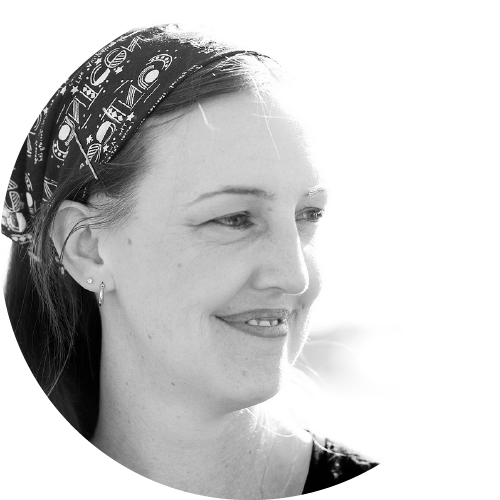 “I’ve never been an American teenager, but John Green crosses both continent and age divides. I defy anyone to read this novel and not come away with an empathy upgrade. It’s the story of a girl dealing with all the usual challenges of adolescence while being consumed by intrusive, obsessive thought spirals. It changed the way I interact with people living with a mental illness, and the friends and family who support them, day in, day out. Green doesn’t deal in implausible happy endings (the gloriously uplifting ending of ‘Will Grayson, Will Grayson’ excepted), and his one-sentence summation of 16-year-old Aza’s future will stay with you, long after the last page.”
“I’ve never been an American teenager, but John Green crosses both continent and age divides. I defy anyone to read this novel and not come away with an empathy upgrade. It’s the story of a girl dealing with all the usual challenges of adolescence while being consumed by intrusive, obsessive thought spirals. It changed the way I interact with people living with a mental illness, and the friends and family who support them, day in, day out. Green doesn’t deal in implausible happy endings (the gloriously uplifting ending of ‘Will Grayson, Will Grayson’ excepted), and his one-sentence summation of 16-year-old Aza’s future will stay with you, long after the last page.”
. . .
I hope this list has you revved up to disrupt your own brain and expand your world-view (don’t forget to share it with your friends and family!). While these books download to your e-reader of choice, check out our 2018 State of Diversity Report and learn how every-day people from all over the world think about balance and belonging in the workplace.

